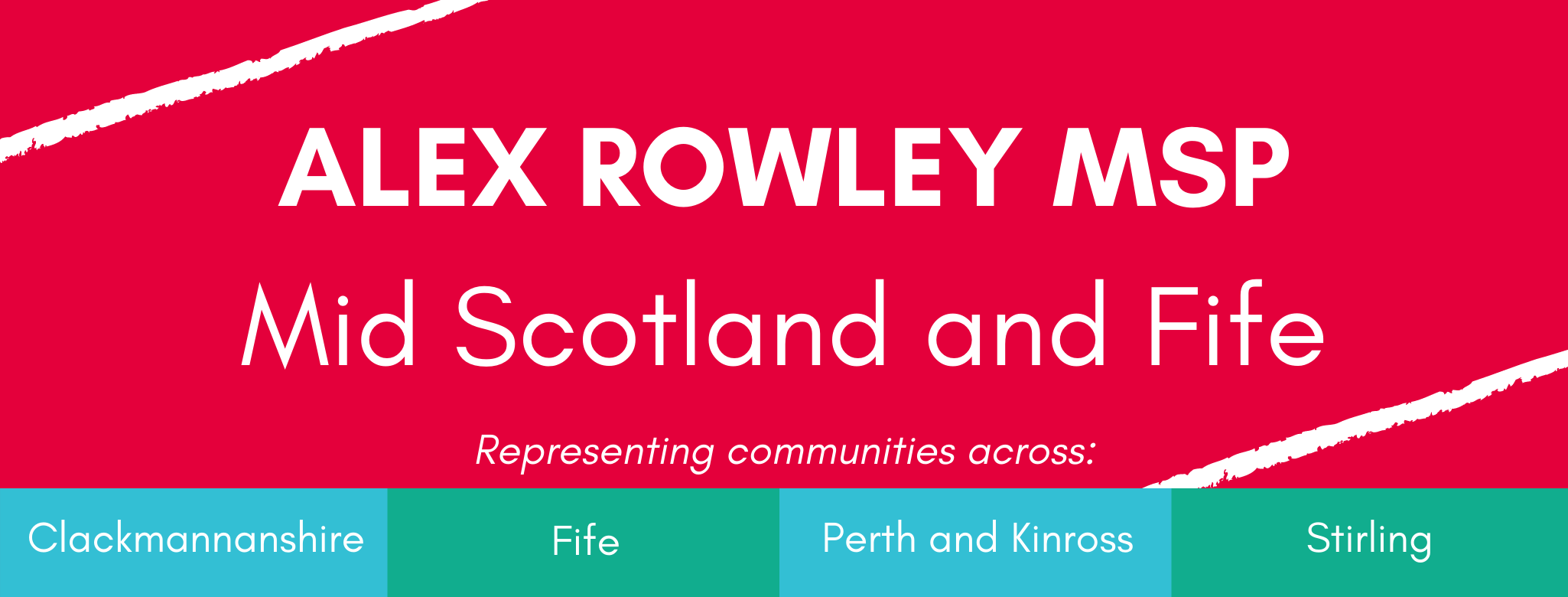TAKE ACTION AND GET ADVICE
ACTION
The STUC wants to ensure that every worker gets what they are due and to keep campaigning with those who are not covered. In the adjacent panel is our latest advice on the government announcement.
You need to talk to your colleagues!
We can do our best to help but we can’t provide advice for every person directly. The support of your union and working together is the best way to get results.
1) If you are in a union that’s great! – contact your local rep; someone else you know who is in the union; or your national office. A list of union websites is here.
2) If there is a union in your work and you are not a member – join! Dont be embarassed. Lots of people don’t join their union because they didnt get round to it or because they didn’t previously see a reason. Hopefully the reason to be a member is now clear!
If there is no union in place here are three useful steps
a) Set up a discussion group with your fellow colleagues. We suggest that managers should not be included.
b) Decide what you want to ask the boss before you present a collective position.
c) Why not use whatsapp, signal or messenger to set up a discussion?
If you need support with that contact us: info@stuc.org.uk
Email the STUC if you need support for your group or contact our campaign group Better than Zero.
What might you be discussing?
Here are some general questions you should be asking if your boss intends to use the scheme.
1) Is there anything that your boss isn’t doing that they should be? Check our information panel opposite.
2) How has your boss said they are calculating your pay and is the boss going to add the additonal 20% to top your wages up to the normal rate?
3) Is the boss furloughing everyone and is everyone being treated fairly?
4) Has your boss communicated their decision to you in writing?
5) Is your boss keeping the workplace open even though you think that’s a bad idea?
Have you recently lost your job?
If you have been paid off and you know (or suspect that) it was due to the corona virus, in many cases your employer can take you back on.
1) If you are contacted by your ex-boss and you want to be taken back do that. Ask them to write down what they are proposing to do.
2) If your ex-boss hasn’t made contact. Contact them! Its best to do that with your colleagues.
3) If you have been contacted, make sure everyone who has been laid off else has been contacted too.
Get talking to your colleagues.
Is everyone being taken back on by your boss?
If not why was that decision made?
It is best to go to the employer with a joint position.
You might want to get an undertaking from the boss then when the wage support period finishes, then no-one will be laid off.
Write a joint letter and ask the boss to agree it.
ADVICE
The STUC has taken a look at the Coronavirus Job Retention Scheme announced on Friday 20th March. Its good news for many. Your Unions have negotiated a real boost in these critical times. Join one today!
But the scheme doesn’t work the same way for everyone and there is still plenty we need to do.
We need urgent clarity on how it will work for some people and we need to make sure employers do the right thing. Our action section suggests some ways to work together to ensure you get what is due to you and that you AND your colleagues are fairly treated.
There are things we dont know yet. The government has promised further guidance. So this is not a definitive guide. You should email us at info@stuc.org.uk asking to be kept updated or return to this site regularly.
(Your data will be treated confidentially, consistent with data protection rules and will only be used for the purposes of giving information or seeking your views on this subject)
Coronavirus Job Retention Scheme.
The Government intends for the Coronavirus Job Retention Scheme to run for at least 3 months from 1 March 2020, but have said that they will extend the Scheme if necessary.
The UK Government have announced a Coronavirus Job Retention Scheme. They intend for the Coronavirus Job Retention Scheme to run for at least 3 months from 1 March 2020, but have said that they will extend the Scheme if necessary.
This Scheme enables a PAYE registered employer who cannot cover staff costs due to the Coronavirus to claim 80% of staff costs.
If your employer intends to access this Coronavirus Job Retention Scheme and to furlough you, they should discuss what this will mean in practice for you.
I am to be ‘furloughed’. What does this mean?
You are classified as a furloughed worker IF you meet the following 3 conditions:
• You are enrolled for PAYE
• You are told that you will be kept on your employer’s payroll
• but you will not be undertaking any work for your employer.
You cannot undertake work for your employer whilst you are furloughed.
This furlough process allows your employer to claim a grant of up to 80% of your wage for all employment costs, up to a cap of £2,500 per month.
I have been furloughed. Am I still employed?
You are still employed even though you have been furloughed. Your employer could fund the 20% difference between the furlough payment and your salary, but they are not required to. If your salary is reduced as a result of these changes, you may qualify for support though the welfare system, including Universal Credit.
I am a zero hours worker. What does this Scheme mean for me?
If you are on a zero hours contract; you meet the definition of ‘employee’ and you are earning more than an average of £118 per week under that contract (known as the Lower Earnings Limit) then you will be on the PAYE system.
The Scheme covers everybody who is on the PAYE system through a company.
Remember: there is a very important distinction between an employee and someone who is considered self-employed. Employers do not need to pay self-employed workers through PAYE – so someone who is classed as self-employed will not be eligible for this Scheme.
There is no guidance available regarding the mechanism for payroll averaging in relation to zero hours contracts however, there is a well-established mechanism for calculating holiday accrual and pay for those working irregular patterns such as zero hours employees and we are recommending that you insist that your employer use this method. Your employer should calculate your average pay by reference to your average salary earned since working for them – up to a maximum of the last 52 weeks.
How will I know I am on the PAYE System?
If you are on the PAYE system you will have a tax code.
If you are given a PAYE tax code, it will be shown on:
• a notice of coding sent by your tax office
• your pay slip
Employers usually have to pay employees through PAYE if the employee earns £118 or more a week (£512 a month or £6136 a year).
Employers do not need to pay self-employed workers through PAYE.
How do I know I’m an employee?
This is a complex area of the law but as a general rule, you are:
• an employee if you work for someone and do not have any of the risks associated with running a business
• self-employed if you run your own business and are responsible for its success or failure Employees are paid on a Pay As You Earn (PAYE) basis, which means tax and National Insurance Contributions (NICs) are usually automatically deducted.
But 80% of my salary is not enough to live on… If you have been furloughed you might find that the 20% reduction in your salary means that your earnings meet the eligibility threshold for Universal Credit or you may find that you qualify for other benefits.
You need to make a claim for this.
From 6 April the Government are increasing the standard allowance in Universal Credit and the basic element in Working Tax Credit for 1 year. Both will increase by £20 per week (on top of planned annual uplifts). This will apply to all new and existing Universal Credit claimants and to existing Working Tax Credit claimants.
I am not on the PAYE System/I am a ‘gig economy worker’ – but I have no work due to the impact of the Coronavirus. Do I qualify for 80% of my salary?
No. Unfortunately you do not. We are fighting for extension of coverage to you. Until then: If you earn less than the Lower Earnings Limit you may already be claiming Universal Credit. You should notify the DWP of the change in your circumstances, telling them that it is due to the impact of the Coronavirus.
If you are a freelancer or classified as self-employed you will be able to claim Universal Credit – as long as you meet the eligibility criteria.
From 6th April, the Government have relaxed the requirements of the Minimum Income Floor to help you to follow guidance on self-isolation and social distancing. This change will apply to all Universal Credit claimants and is intended to last for the duration of the outbreak.
New claimants will not need to attend the jobcentre to demonstrate ‘gainful self-employment’.
I just started working for my employer – will I be eligible for salary payments if I am furloughed?
Yes, you will be eligible, as long as you are part of the PAYE system. There is no qualifying employment period.
Will I qualify for Occupational or Statutory Sick Pay if I contract Coronavirus OR am required to Self-isolate?
If you are an employee, you might qualify for occupational sick pay. You should check with your employer, asking for details of their occupational sick pay scheme (if they have one).
To qualify for Statutory Sick Pay (SSP) you must:
• be classed as an employee and have done some work for your employer
• earn an average of at least £118 per week You will not qualify if you:
• have received the maximum amount of SSP (28 weeks)
• are getting Statutory Maternity Pay
The Government have amended rules for payment of SSP – it will be paid from day one of your Coronavirus related absence – whether this is because you are a confirmed case of the virus or you have been told to self-isolate.
I am self-employed/I am a ‘gig worker – can I claim SSP?
If you are self-employed and you are sick or have to self-isolate, you will be eligible to access Universal Credit at a rate equivalent to SSP for employees.
How much Universal Credit might I get?
How much you receive (called the UC Standard Allowance) depends on whether you are single or claiming as a couple. It also depends on your age. There is one standard allowance for your household:
• Single claimant aged under 25: £251.77 per month
• Single claimant aged 25 or over: £317.82 per month
• Joint claimants both aged under 25: £395.20 per month
• Joint claimants either aged 25 or over: £498.89 per month
Please note: As from 6 April the Government are increasing the standard allowance in Universal Credit and the basic element in Working Tax Credit for 1 year. Both will increase by £20 per week (on top of planned annual uplifts).
This will apply to all new and existing Universal Credit claimants and to existing Working Tax Credit claimants.
However, you might also be eligible for ‘additional elements’ such as childcare or housing costs. You can obtain further information from the UC helpline: 0800 328 5644. You can also obtain advice from your local Welfare Rights Officer – they can be found working for your Local Authority or perhaps a Housing Association. The Citizens Advice Bureau is also a good source of information – they have people dedicated to assisting with UC claims: https://www.cas.org.uk/helptoclaim
Universal Credit is means tested and paid based on earnings – this means that it is calculated at the same rate regardless of whether you are a worker, self-employed or an employee.





